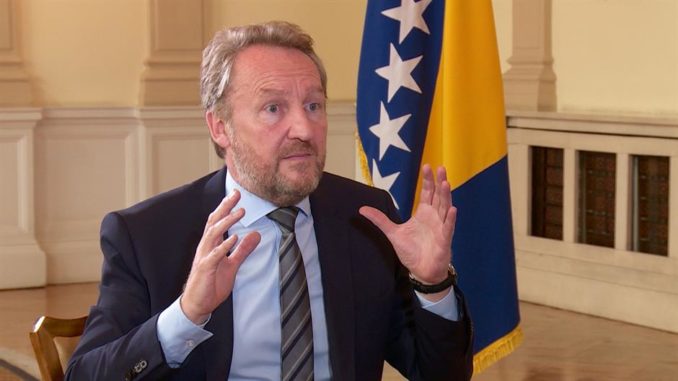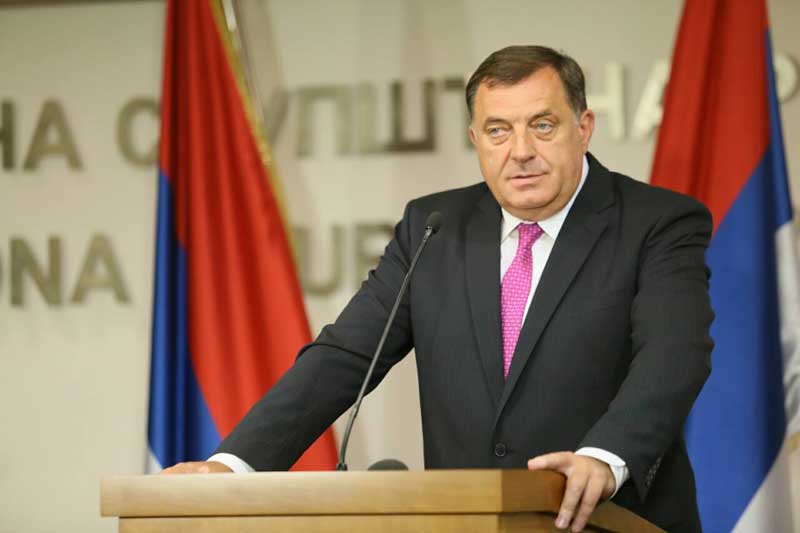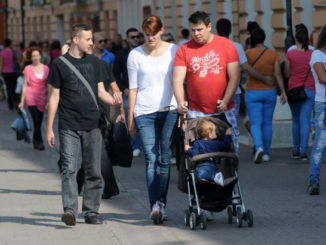
Bakir Izetbegovic, leader of the main Bosniak Party, won a seat in the Bosnian tripartite presidency, but the winners of the Serb and Croat seats remain unclear as vote-counting continues.
Izetbegovic, the leader of the Party of Democratic Action, SDA, had a clear lead over his nearest rival for the Bosniak presidency seat on Monday morning after 76 per cent of ballots were counted.
However it remains unclear who will take the Serb and Croat presidency seats after Sunday’s polls which also saw voters casting ballots for parliament.
Dragan Covic from the Croatian Democratic Union, HDZBiH, declared that he had won the Croat post, after the Central Electoral Commission announced that he had taken around 20,000 more votes than his nearest challenger.
But his main rival, Martin Raguz of HDZ1990, said he still has a chance to win after all the ballots are counted on Monday.
“When 100 per cent of the votes are processed, I believe I will be a member of the presidency of Bosnia and Herzegovina,” Raguz said.
Meanwhile the Alliance of Independent Social Democrats, SNSD, the governing party in Bosnia’ Serb-led entity Republika Srpska, claimed victory for its candidate for the Serb seat in the tripartite presidency, Zeljka Cvijanovic.
Cvijanovic was leading by a few thousand votes after the Central Electoral Commission counted 52 per cent of the ballots.
But the Party of Democratic Progress, PDP, said that according to its own estimates, its candidate for the Serb seat, Mladen Ivanic, was leading by 235,000 to Cvijanovic’s 231,000.
“The sample used by the Central Electoral Commission is not big enough, that’s only half of processed polling stations, and we are sure about our data,” said Igor Crnadak of the PDP.
The Central Electoral Commission said it would declare the results at 2pm local times on Monday.
A total of 3,278,908 voters were eligible to vote but turnout was only 54.14 per cent, two per cent less than at the 2010 polls.
The elections were held on several levels as people voted the tripartite state presidency, the state parliament, the assemblies of Bosnia’s two entities, ten cantonal assemblies within the Federation of Bosnia and Herzegovina and the president of Republika Srpska.
Competing were 50 political parties, 24 coalitions and 24 independent candidates. A total of 7,748 candidates were standing, of whom 42 per cent were women.
Republika Srpska awaits new president
Milorad Dodik from ruling Alliance of Independent Social Democrats, SNSD, has declared that he is leading in the race for the president of Republika Srpska with 12,000 votes more than his main opponent, Ognjen Tadic from the Serb Democratic Party, SDS.
But Tadic also insisted that he was leading the race with a few hundred votes’ advantage, although he said that it would only be clear after the final results are announced by the Central Electoral Commission.
His party counted about 70 per cent of the ballots and claimed that it had won 50.13 per cent of the votes, but said that the difference between the number of votes won by the two candidates was so small that the results could easily change.



